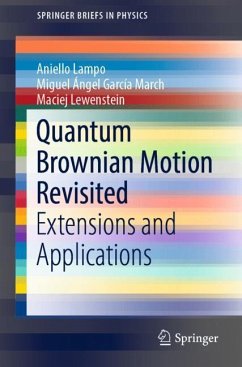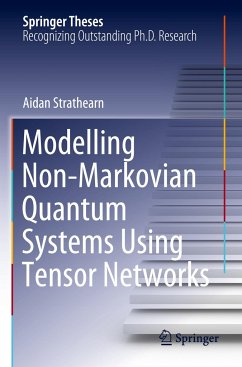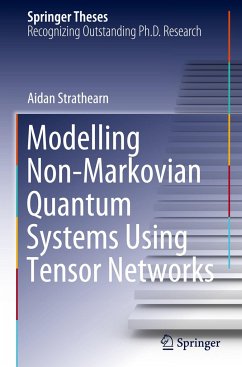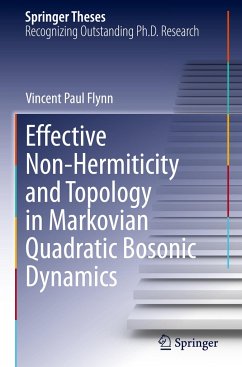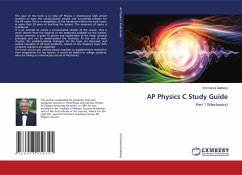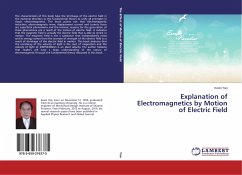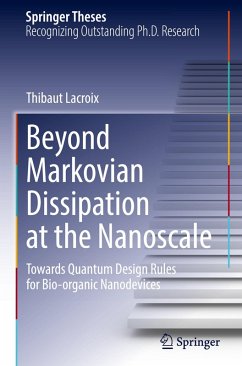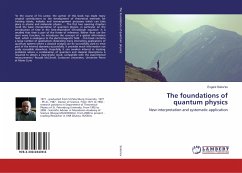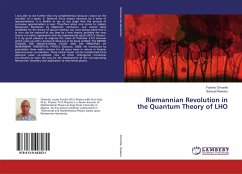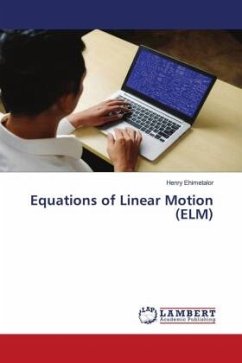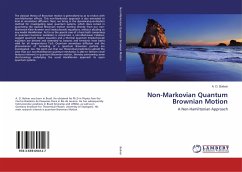
Non-Markovian Quantum Brownian Motion
A Non-Hamiltonian Approach
Versandkostenfrei!
Versandfertig in 6-10 Tagen
46,99 €
inkl. MwSt.

PAYBACK Punkte
23 °P sammeln!
The classical theory of Brownian motion is generalized so as to reckon with non-Markovian effects. This non-Markovian approach is also extended to look at anomalous diffusion. Next, we bring in the dynamical-quantization method for investigating open quantum systems, which does consist in quantizing the classical Brownian motion starting directly from our non-Markovian Klein-Kramers and Smoluchowski equations, without alluding to any model Hamiltonian. As far as the special case of a heat bath comprising of quantum harmonic oscillators is concerned, a non-Markovian Caldeira-Leggett quantum mas...
The classical theory of Brownian motion is generalized so as to reckon with non-Markovian effects. This non-Markovian approach is also extended to look at anomalous diffusion. Next, we bring in the dynamical-quantization method for investigating open quantum systems, which does consist in quantizing the classical Brownian motion starting directly from our non-Markovian Klein-Kramers and Smoluchowski equations, without alluding to any model Hamiltonian. As far as the special case of a heat bath comprising of quantum harmonic oscillators is concerned, a non-Markovian Caldeira-Leggett quantum master equation and a thermal quantum Smoluchowski equation are derived and extended to bosonic and fermionic heat baths valid for all temperatures T 0. Quantum anomalous diffusion and the phenomenon of tunneling of a quantum Brownian particle are investigated, too. We point out that our theoretical predictions uphold the view that our non-Hamiltonian quantum mechanics is able to fathom novel features inherent in quantum Brownian motion, thereby overcoming some shortcomings underlying the usual Hamiltonian approach to open quantum systems.



